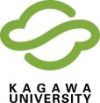Faculty of Agriculture & Graduate School of Agriculture
The Faculty of Agriculture and the Graduate School of Agriculture at Kagawa University offer a dynamic and internationally connected environment for advanced study in agricultural science, food systems, and bioresources. Located on the Miki Campus in western Japan, we combine cutting-edge research with practical education to address global challenges related to food security, sustainability, and human health.
Our undergraduate program provides a strong foundation in applied biological sciences and offers five academic courses: Applied Life Science, Bioresource Production Science, Environmental Science, Bioresource and Functional Chemistry, and Food Science. Please note that the bachelor’s program is conducted primarily in Japanese. International applicants interested in undergraduate study should consult the Japanese-language website for detailed admission information.
At the graduate level, the Graduate School of Agriculture offers specialized master’s programs in Bioresource Production Science, Applied Bioresource Science, and Rare Sugar Science. Rare sugar research is a signature strength of Kagawa University, with our researchers having pioneered the world’s first mass-production technologies and promoted their global industrial application. In particular, D-psicose has drawn international attention for its potential role in supporting metabolic health and has been incorporated into numerous food and health-related products.
The Graduate School also places strong emphasis on food safety and food systems education through internationally recognized training programs developed in cooperation with industry and government partners. These programs prepare students to work in global food industries and to serve as future leaders linking Japan with international markets and research communities.
Kagawa University warmly welcomes international students and visiting scholars. Many faculty members conduct teaching and research in English, and our academic community includes professors from Brazil, Canada, France, and the United Kingdom. In addition to Japanese, languages spoken among faculty members include Cantonese, English, French, Mandarin Chinese, Portuguese (Brazil), and Spanish. Administrative staff in student support offices are also able to provide assistance in English.
The Miki Campus is located in a safe and welcoming regional city known for its quality of life and friendly community. International students find a supportive learning environment, close interaction with faculty, and strong opportunities for research collaboration. We invite you to join Kagawa University and become part of a global network advancing sustainable agriculture and food science.
About Us
- Key academic units of Kagawa University, Japan
- Located on the Miki Campus in Kagawa Prefecture
- Focus on agriculture, food science, bioresources, and sustainability
- Mission: educate future leaders for global food systems through science and innovation
Undergraduate Program (Bachelor’s Degree)
- Department of Applied Biological Science
- Five academic courses:
- Applied Life Science
- Bioresource Production Science
- Environmental Science
- Bioresource and Functional Chemistry
- Food Science
- Language of instruction: Japanese
- International applicants should refer to the Japanese-language website for undergraduate admissions information
Graduate Programs (Master’s & Doctoral)
- Master’s divisions:
- Bioresource Production Science
- Applied Bioresource Science
- Rare Sugar Science
- Doctoral education through the United Graduate School of Agricultural Sciences (with Ehime University)
- Strong emphasis on research-based education and international collaboration
Research Strengths
- Global leadership in rare sugar science
- Industrial and government collaboration
- Advanced research in bioresources, food science, and applied biological sciences
Food Safety and Global Careers
- Specialized food safety and food systems programs for international students
- Industry-linked training
- Career pathways in:
- Global food companies
- Research institutions
- Food systems management and innovation
International Environment
- Graduate education and research conducted in English in many courses
- International faculty from:
- Brazil
- Canada
- France
- United Kingdom
- Faculty languages include:
- Japanese
- Cantonese
- English
- French
- Mandarin Chinese
- Portuguese (Brazil)
- Spanish
- Administrative staff provide student support in Japanese and English
